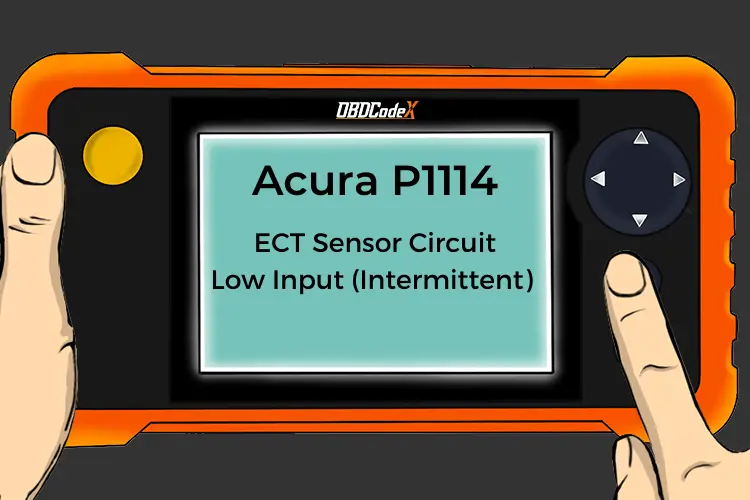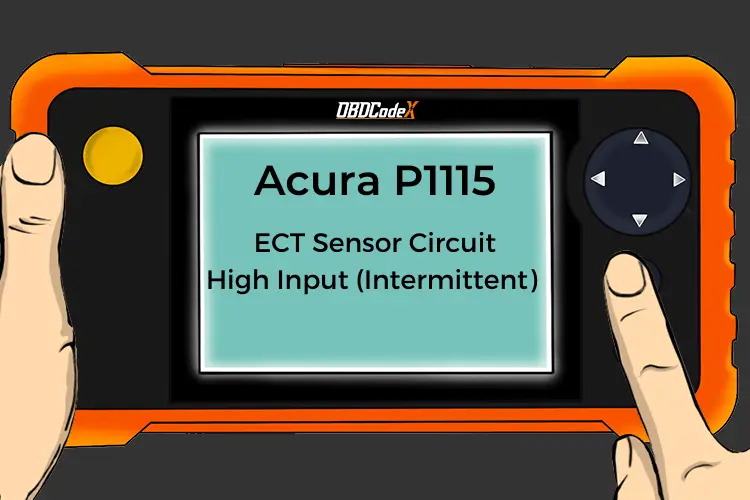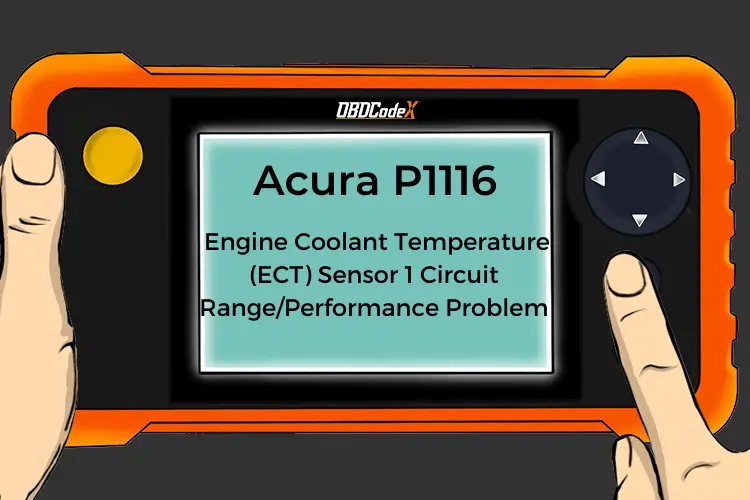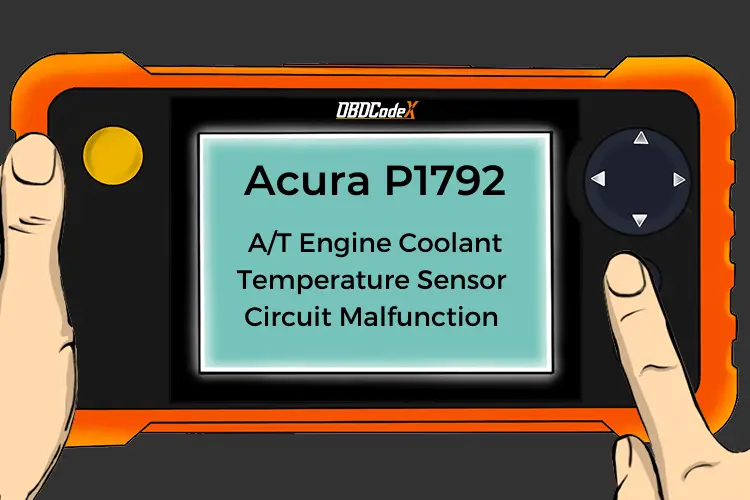P2185: Engine Coolant Temperature Sensor #2 Circuit High Input
Is your scanner showing P2185?
No worries. We'll show you what it means and how to deal with it.
P2185: Engine Coolant Temperature Sensor #2 Circuit High Input
OVERVIEWWhat Does The P2185 Code Mean?
The engine coolant temperature (ECT) sensoris a thermistor screwed into a coolant passage in the cylinder head. Sensor resistance is high when coolant temperature is low and resistance drops when coolant temperature increases.
The powertrain control module (PCM) provides a 5 volt reference and a ground to the sensor. The PCM monitors voltage drop to determine coolant temperature. If the ECT reads less than freezing temp. when engine has been running for more than a few minutes, the PCM determines a circuit fault and sets this code. Or if the PCM determines the sensor resistance is out of specs, this code is set.
Note: This DTC is basically identical to P0118, however the difference with this code is that this refers to the #2 ECT sensor circuit. So vehicles exhibiting this code means they have two ECT sensors. Be sure you are diagnosing the correct sensor circuit.
What Are The Symptoms Of The P2185 Code?
Symptoms of a P2185 could include:
- Very poor fuel economy
- A no start condition
- Vehicle may start, but run very poorly, blowing black smoke, running very rough and misfiring
- Illumination of MIL
What Are The Potential Causes Of The P2185 Code?
A code P2185 may mean that one or more of the following has happened:
- A bad connection at the #2 ECT sensor
- An open in the ground circuit between the #2 ECT sensorand the PCM
- A short in the voltage feed between the sensor and the PCM
- A bad PCM (less likely)
- A bad temperature sensor (shorted internally)
How Can You Fix The P2185 Code?
First, if you have access to a scan tool, check the reading of the #2 coolant sensor. Does it read a logical number? If so, the problem is likely intermittent. Perform a “wiggle” test by wiggling the connector and harness to the sensor while watching the reading on the scan tool. Watch for any drop-outs. Drop-outs would indicate a bad connection. If the scan tool reads an illogical temperature, check the resistance of the temperature sensor. If it is out of specs, replace it. If it is in specifications, unplug the sensor and, using a fused jumper wire, jumper the two terminals of the connector together. The temperature reading should now be maxed out to above 250 degrees F. If not, there is likely a problem with the ground circuit or voltage supply.
Check for 5 volts reference voltage at the connector. Also check for ground presence at the connector. If you do not have 5V ref. and/or ground continuity, check for these back at the PCM connector.
If you have these at the PCM connector, then repair open or short between the PCM and the sensor. If you do not, remove the offending wire from the PCM and then check for proper voltage at the PCM pin. If it’s present now, repair short on the circuit. If it isn’t present after removing the wire and checking the pin, replace PCM
NOTE: Usually, P2185 is indicative of a bad temperature sensor, but doesn’t rule out these other possibilities. If you’re unsure of how to diagnose a PCM, do not attempt.
Related ECT sensor circuit codes: P0115, P0116, P0117, P0118, P0119, P0125, P0128, P2182, P2183, P2184, P2186
Recommended Parts
Below are some recommended auto parts to help you address the trouble code affecting your vehicle and get it running smoothly again:
>>> Twippo 372Pcs Waterproof Wire Connectors Kit
>>> ECT Sensor
>>> ECU
>>> Autel Scanner MaxiCOM MK808S
Note: During the purchasing process, please check carefully whether the part you want to buy fits your car!
Check This Video For Reference
Reference Sources
P2185 Engine Coolant Temperature Sensor #2 Circuit High Input, OBD-Codes.




